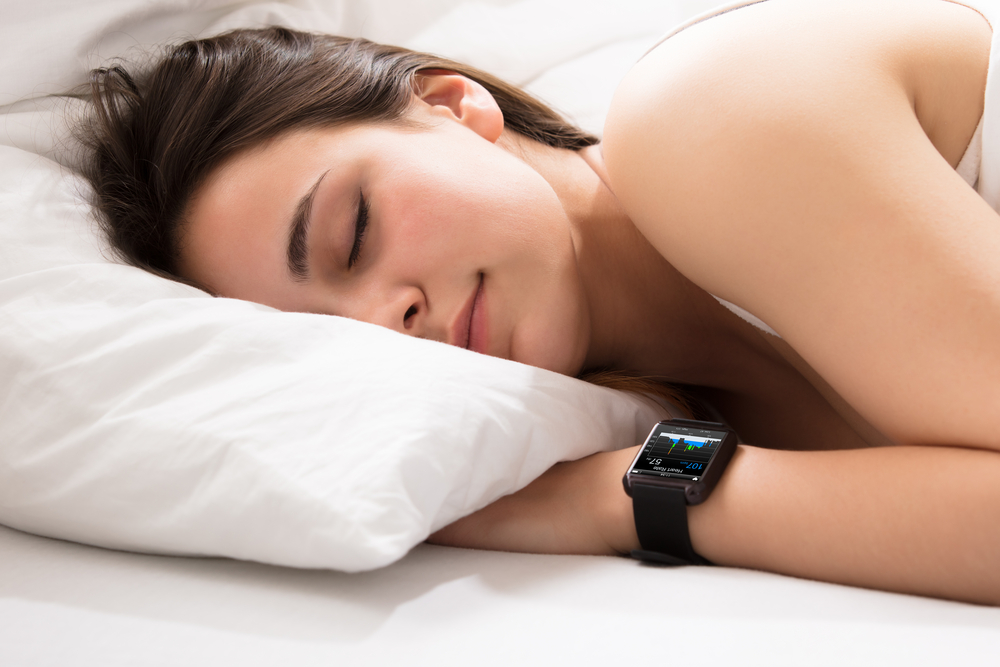It’s very rare to hear about how advancements in technology can actually help combat insomnia. Our addiction to blue screens are actually hurting our sleep quality. However, one of the more underrated tools at our disposal is sleep tracking.
Fitbit models like the Apple Watch and Motiv Ring help users monitor the quality, quantity and duration of their sleep alongside environmental contributors to insomnia. Although the practice is growing in popularity there hasn’t been many studies surveying their effectiveness.
Recently the researchers over at SleepJunkie polled 1,007 people to determine exactly how sleep tracking affected the quality of their rest.
“Technology can play both the good and the bad guy when it comes to sleep. On the one hand, we may forgo sleep to finish streaming our favorite TV shows, but on the other, technology can provide us with greater insight into better sleep,” reports study author Meg Riley. “Some respondents chose to track their sleep, while others did not, but everyone had an opinion on the purported benefits and downsides of sleep tracking.”
Sleep tracking correlated with greater mental health, physical health, sleep, career, and life satisfaction.
Thirty-percent of the respondents routinely tracked their sleep in some form or another and more than a third of these reviewed their data at least four times a week. The primary goal for most trackers was to improve their overall health.
Obstructive Sleep Apnea accounts for the majority of chronic insomnia cases. To identify symptoms medical professionals recommend sufferers monitor breathing patterns and the amount of time spent tossing and turning before slow brain wave sleep. This can be done with the help of a sleep journal but digital methods are much more intuitive.
Parents, Millenials and higher-income respondents tracked their sleep the most often. A high-end tracker will run you somewhere around $300 but there are more affordable models that start as low as $50. The average amount respondents spent on their models was $147.
More than 31% said that they received more sleep night to-to-night as a direct result of purchasing a tracker, 34% said that they were considerably less stressed and more than half reported feelings of anxiety on the nights that they forgot to track their sleep. More broadly, 60% said tracking their sleep was beneficial to some degree.
Most tracking devices monitor several bio-markers alongside time spent sleeping-like heart rate, blood pressure, and water intake.
As a result of confounding changes to energy, mood, and routine, respondents felt more satisfied with their careers as well as their overall mental and physical health.
“On a lighter note, 42.9 percent said they felt healthier after starting to track their sleep. Another 39.3 percent noticed their energy levels increased, and 29 percent found they were more productive throughout the day,” Riley explained.
Despite the strength of these results almost half of the respondents who chose not to track their sleep said they didn’t believe it would have any significant impact on their wellness. Sixteen-percent expressed privacy concerns and 10% had never heard of sleep tracking technology.
Riley concludes, “Ultimately, this data reveals an option for better sleep that works for at least some Americans, and that is sleep tracking. Any option for better sleep, particularly one with so many benefits, as our respondents explained to us, is certainly worth exploring in our book.”
This article was originally published on Ladders. If you like this article, then you will enjoy How to write a resume for 2020 and How to respectfully quit your job.
Follow us here and subscribe here for all the latest news on how you can keep Thriving.
Stay up to date or catch-up on all our podcasts with Arianna Huffington here.


